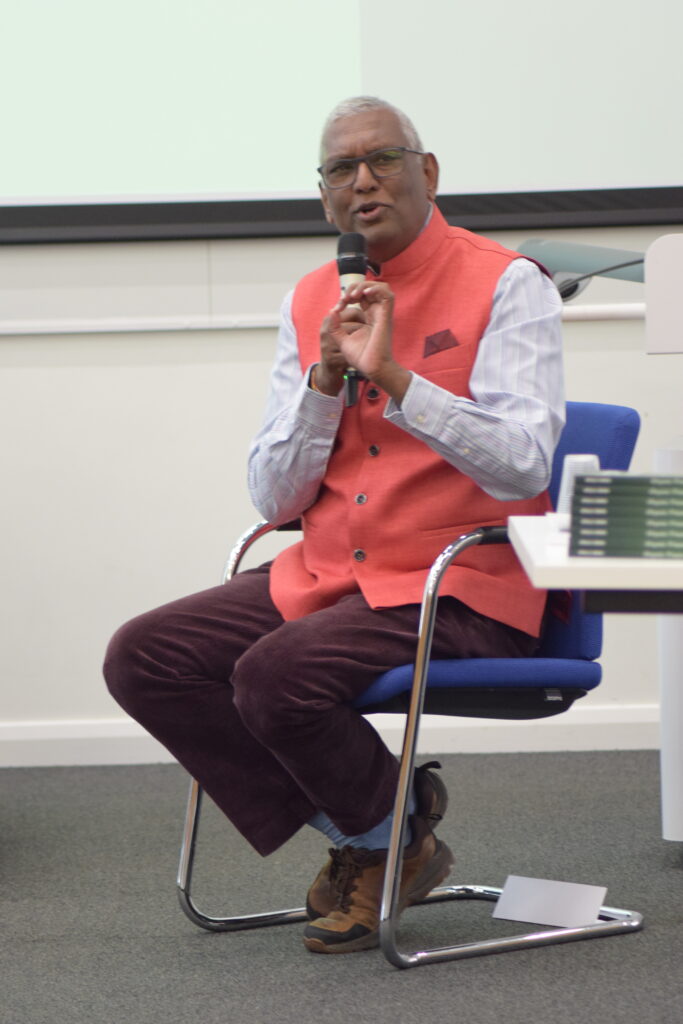PROFESSOR ATUL K. SHAH www.atulkshah.co.uk
Globally renowned expert advisor and broadcaster on culture, accounting, finance, business ethics, holistic education and leadership

I want to speak today not just about Organic Finance as an idea, but about its tempo—its rhythm—and why it demands a particular kind of patience.
Not the patience of bureaucracy, or delay.
But the patience of percolation.
Because Organic Finance is not a reform.
It is a re-rooting. A remembering.
We live in a time when finance dominates public life, yet the finance academy—its scholars, thinkers, institutions—is oddly marginal.
Most citizens don’t hear from financial academics.
Policymakers consult bankers, not thinkers.
And when crises hit, finance retreats into models, not ethics.
Why?
Because finance, as it’s taught and practiced, has become unmoored from life.
It has become abstract, ahistorical, morally neutral—and yet enormously powerful.
Organic Finance asks:
What if we began again, not with equations, but with relationships?
Not with risk-adjusted returns, but with regenerative reciprocity?
Not with the domination of capital, but with its service to the commons?
This is not a new idea. It is an ancient one.
Found in dharmic traditions, Indigenous wisdoms, monastic bookkeeping, women’s mutual funds, village treasuries.
But it is radical now because it requires a different kind of time.
Today’s finance is fast, extractive, transactional.
Organic Finance is slow, attuned, and cultivated over seasons.
And that’s why patience is not just a personal virtue here.
It is a strategic, systemic commitment.
Let me explain.
First: to teach Organic Finance, we must first help people unlearn.
Unlearn the myth of value-neutrality.
Unlearn the idea that capital allocation is apolitical.
Unlearn the false belief that finance can be separated from the planetary and the moral.
That kind of unlearning doesn’t happen in one course or one conference.
It happens through exposure, encounter, and community.
Second: institutions don’t change just because we critique them.
They change when the existing logic begins to fray—
And when a new logic is patiently cultivated in parallel.
That’s what Organic Finance is doing.
Building small, credible, imaginative alternatives.
Encouraging mutual credit systems, solidarity funds, and climate-aligned cooperatives.
Not to replace Wall Street overnight—
But to redesign Stock Markets to the futures we actually want.
Third: patience allows us to resist premature clarity.
Organic Finance is not a blueprint. It is a living inquiry.
It asks questions like:
- What does it mean to design capital with care, not just calculation?
- What happens when finance is rooted in place and memory, not just scale and speed?
These are not problems to solve.
They are relationships to deepen.
So yes—this work is slow.
But slow is not weak.
Slow is deliberate.
Slow is faithful.
Slow is what forests do, and what cultures must do when they are healing.
Organic Finance will not “go viral.”
But it might go mycelial.
It might spread underground through trust, insight, and quiet courage—
Until one day, people look around and realize:
Finance no longer belongs only to banks or markets.
It belongs again to life.
